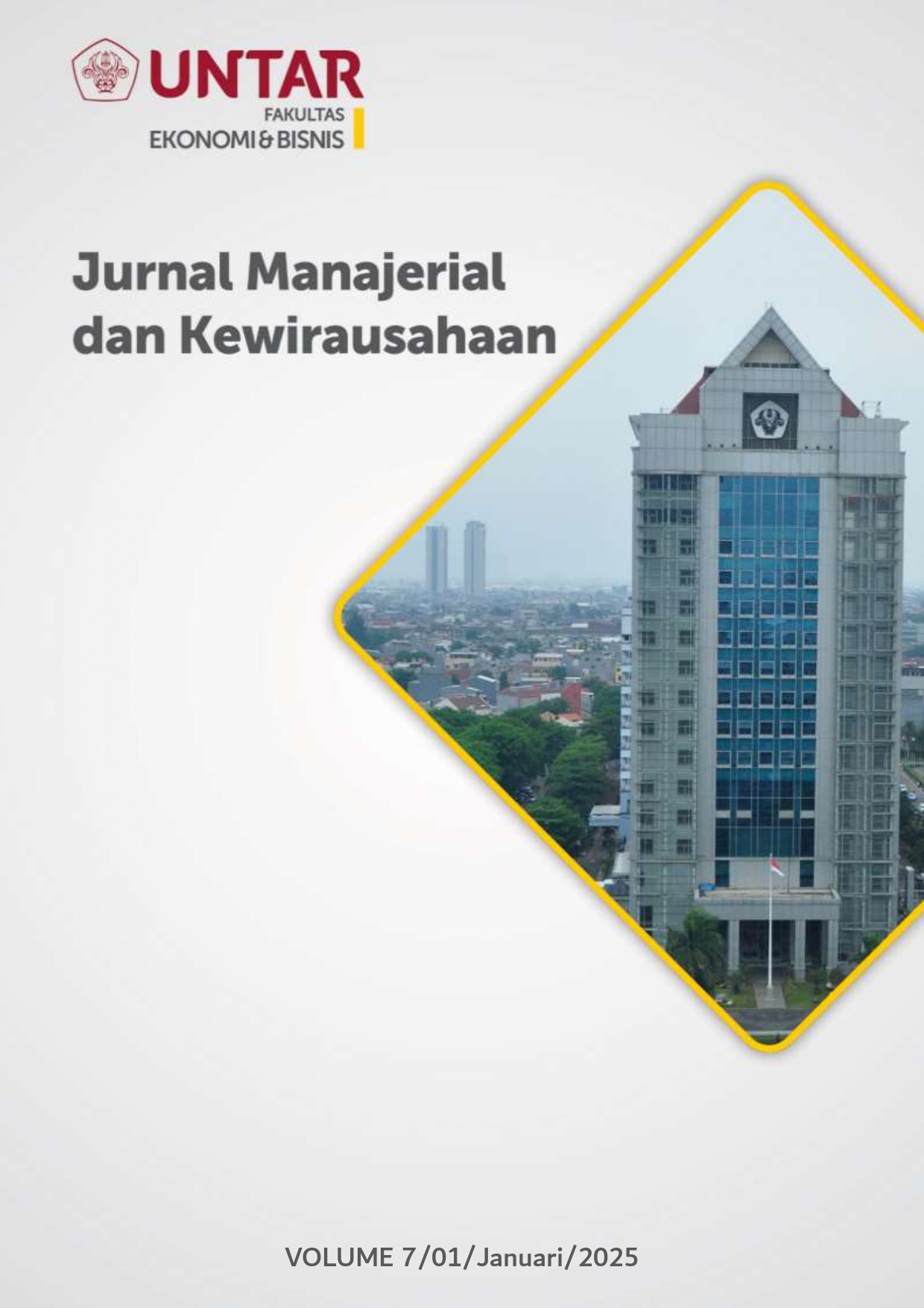Hubungan Gaya Kepemimpinan Laissez-Faire, Suasana Lingkungan Kerja terhadap Kreativitas Karyawan Industri Desain
Main Article Content
Abstract
The purpose of this study was to analyze the effect of the Laissez-faire leadership style, the atmosphere of the physical environment on worker creativity mediated by a sense of satisfaction from workers towards employees in the design industry. This study uses the method of probability sampling method with purposive sampling technique. Questionnaires were distributed to 118 workers engaged in various types of design and data processing using the PLS-SEM application. From the testing process, the results show that the pattern of Laissez-faire leadership style, the atmosphere of the work environment has a positive and significant impact on worker creativity,
Article Details
Section

This work is licensed under a Creative Commons Attribution-NonCommercial-ShareAlike 4.0 International License.
This work is licensed under a Jurnal Muara Ilmu Ekonomi dan Bisnis Creative Commons Attribution-ShareAlike 4.0 International License.,/p>
References
Anderson, N., Potočnik, K., & Zhou, J. (2014). Innovation and Creativity in Organizations: A State-of-the-Science Review, Prospective Commentary, And Guiding Framework. Journal of Management, 40(5), 1297-1333. https://doi.org/10.1177/0149206314527128
Avolio, B. J. (2011). Full Range Leadership Development (2nd ed.). SAGE Publications.
Faraz, N. A., Xu, R., & Mammadov, R. (2018). Impact of Laissez-Faire Leadership on Role Ambiguity and Role Conflict: Evidence from Azerbaijan. Journal of Business and Management, 24(2), 1-12.
Gupta, V., & Singh, S. (2017). Leadership and creative performance behaviors in R&D laboratories: Examining the mediating role of creative self-efficacy. Journal of Leadership & Organizational Studies, 24(2), 322-334
Kuenzi, M., & Schminke, M. (2016). "Assembling fragments into a lens: A review, critique, and proposed research agenda for the organizational work climate literature." Journal of Management, 42(6), 1693-1727.
Northouse, P. G. (2018). Leadership: Theory and Practice (8th ed.). SAGE Publications.
Parker, C. P., Baltes, B. B., Young, S. A., Huff, J. W., Altmann, R. A., LaCost, H. A., & Roberts, J. E. (2017). "Relationships between psychological climate perceptions and work outcomes: A meta-analytic review." Journal of Organizational Behavior, 38(4), 389-416
Raziq, A., & Maulabakhsh, R. (2015). Impact of working environment on job satisfaction. Procedia Economics and Finance, 23, 717-725.
Yanuar, Y. (2017). Compensation, Motivation and Performance of Employees: Evidence from Indonesia. Journal of Economic & Management Perspectives, 11(4), 486-492.

